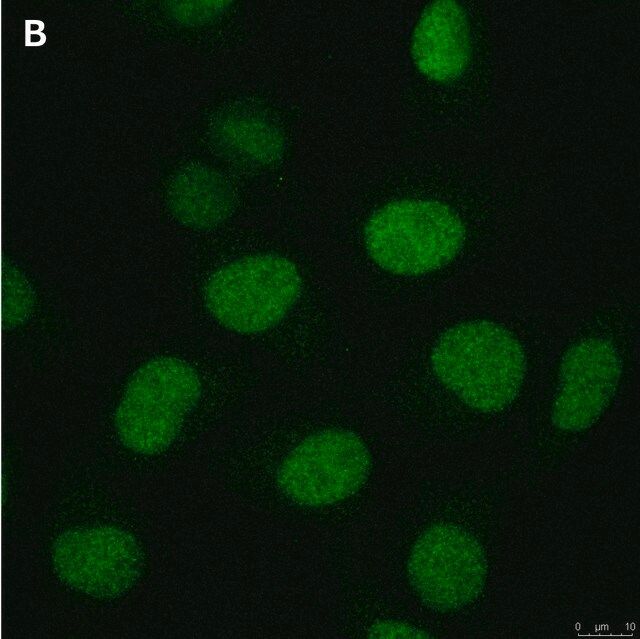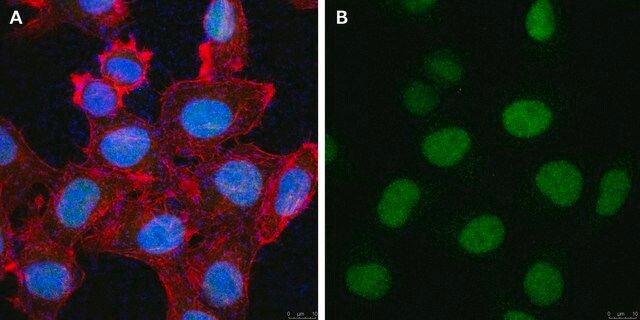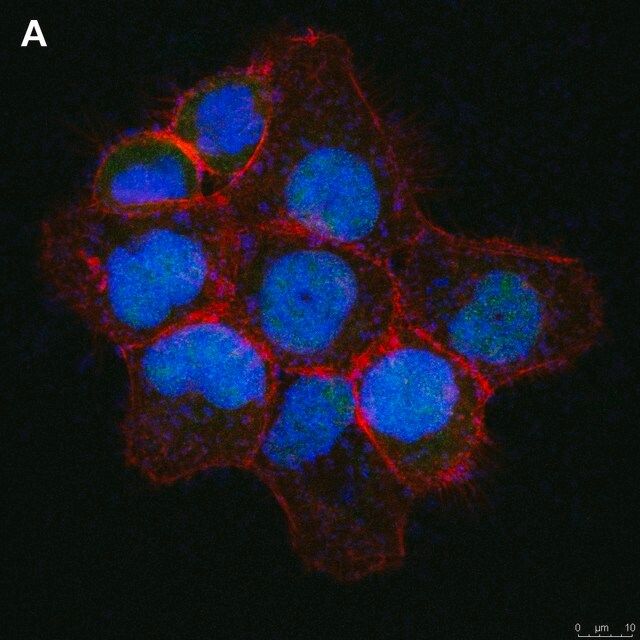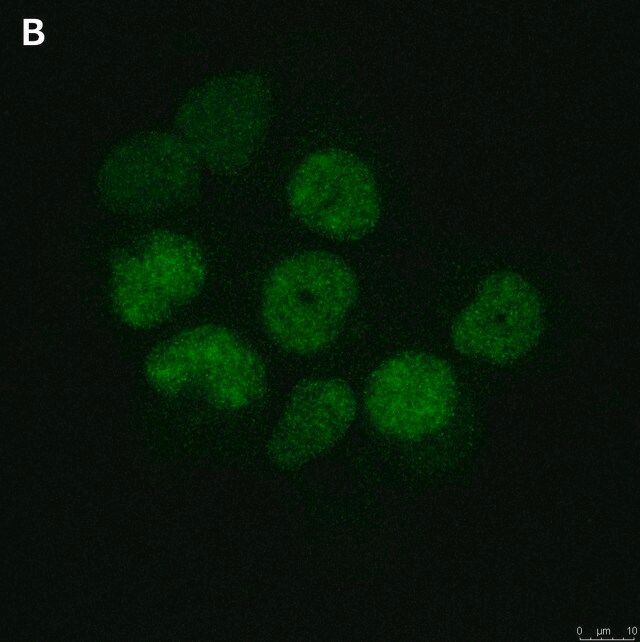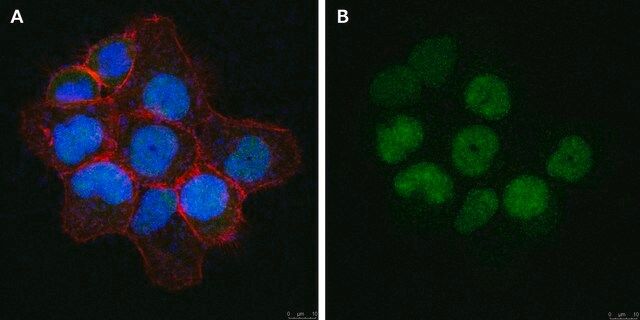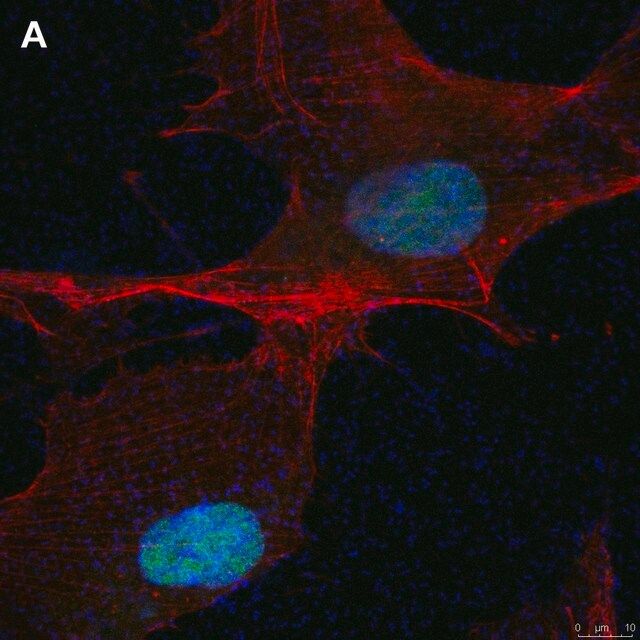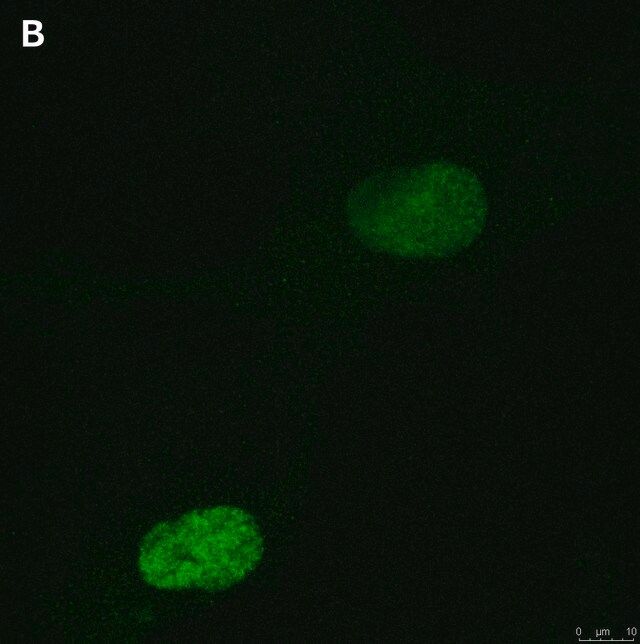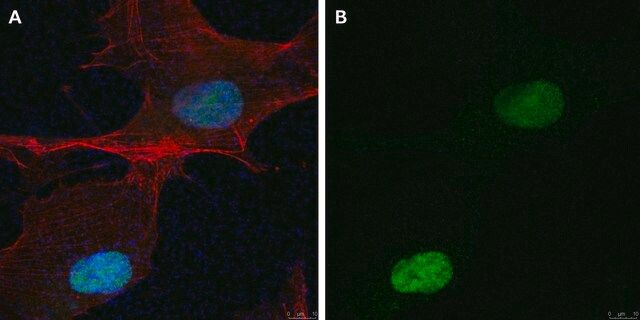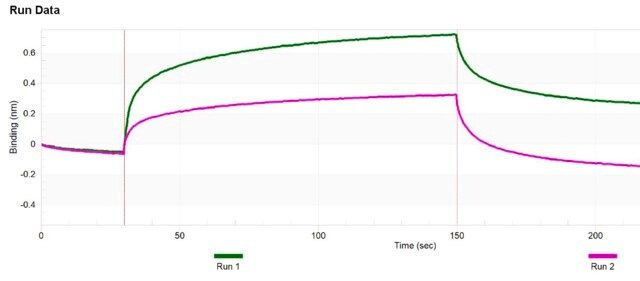您的位置:首页 > 产品中心 > Anti-Cryptochrome-1 Antibody, clone 2C22 ZooMAb® Rabbit Monoclonal
Anti-Cryptochrome-1 Antibody, clone 2C22 ZooMAb® Rabbit Monoclonal
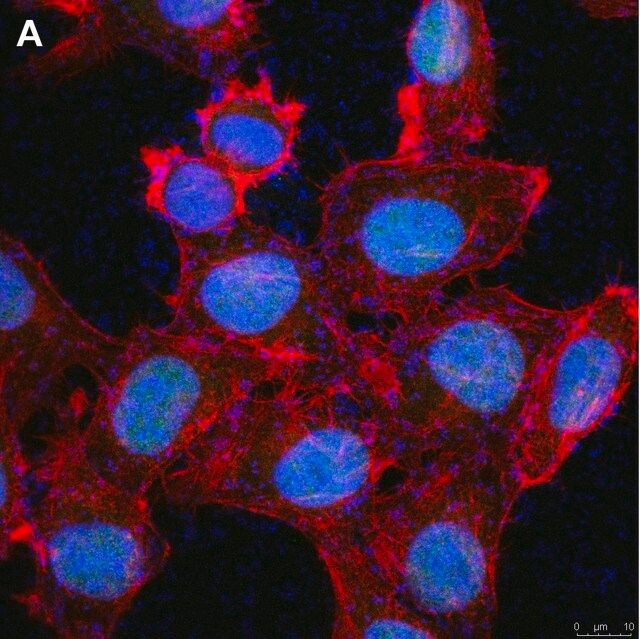


| 产品编号: | 4083036 |
| 规格: | recombinant, expressed in HEK 293 cells |
| 包装规格: | 25 μL,4 X 25 μL |
| 产品类别: | 进口试剂 |
| 品牌: | Sigma-Aldrich |
| 优惠价: | 立即咨询 |
产品别名
Anti-Cryptochrome-1 Antibody, clone 2C22 ZooMAb® Rabbit Monoclonal
Cry1
产品性质
| biological source【生物来源】 | rabbit |
| recombinant【重组】 | expressed in HEK 293 cells |
| conjugate【偶联物】 | unconjugated |
| antibody form【抗体形式】 | purified antibody |
| antibody product type | primary antibodies |
| clone【克隆】 | recombinant monoclonal |
| product line【产品线】 | ZooMAb® learn more |
| form【形式】 | lyophilized |
| mol wt【分子量】 | calculated mol wt 66.4 kDa observed mol wt ~60 kDa |
| species reactivity | human |
| species reactivity (predicted by homology) | monkey, bovine |
| packaging【包装】 | pkg of 25 μL |
| greener alternative product characteristics【环保替代产品特性】 | Waste Prevention Designing Safer Chemicals Design for Energy Efficiency Learn more about the Principles of Green Chemistry. |
| enhanced validation【增强验证】 | recombinant expression Learn more about Antibody Enhanced Validation |
| technique(s) | affinity binding assay: suitable immunocytochemistry: suitable western blot: suitable |
| isotype【同位素/亚型】 | IgG |
| greener alternative category【环保替代产品分类】 | Aligned |
| shipped in【运输】 | ambient |
| storage temp.【储存温度】 | 2-8℃ |
基本信息
| General description【一般描述】 | ZooMAb antibodies represent an entirely new generation of recombinant monoclonal antibodies. Each ZooMAb antibody is manufactured using our proprietary recombinant expression system, purified to homogeneity, and precisely dispensed to produce robust and highly reproducible lot-to-lot consistency. Only top-performing clones are released for use by researchers. Each antibody is validated for high specificity and affinity across multiple applications, including its most commonly used application. ZooMAb antibodies are reliably available and ready to ship when you need them. Learn more about ZooMAb here. |
| Specificity【特异性】 | Clone 2C22 is a ZooMAb rabbit recombinant monoclonal antibody that specifically detects Cryptochrome-1 (CRY1). It targets an epitope within 18 amino acids from the C-terminal region. |
| Immunogen【免疫原】 | KLH-conjugated linear peptide corresponding to 18 amino acids from the C-terminal region of human Cryptochrome-1 (CRY1). |
| Application【应用】 | Anti-Cryptochrome-1, clone 2C22 ZooMAb, Cat. No. ZRB1413, is a recombinant Rabbit monoclonal antibody that targets CRY1 and is tested Affinity Binding Assay, Immunocytochemistry and Western Blotting. Western Blotting Analysis: A 1:1,000 dilution from a representative lot detected Cryptochrome-1 in THP-1 and HeLa cell lysate. Immunocytochemistry Analysis: A 1:1,000 dilution from a representative lot detected Cryptochrome-1 in HeLa, HUVEC, and A431 cells. Affinity Binding Assay: A representative lot of this antibody bound CRY1 peptide with a KD of 1.7 x 10-6 in an affinity binding assay. Note: Actual optimal working dilutions must be determined by end user as specimens, and experimental conditions may vary with the end user. |
| Physical form【外形】 | Purified recombinant rabbit monoclonal antibody IgG, lyophilized in PBS with 5% Trehalose, normal appearance a coarse or translucent resin. Contains no biocide or preservatives, such as azide, or any animal by-products. Larger pack sizes provided as multiples of 25 μL. |
| Reconstitution【重悬】 | 0.3 mg/mL after reconstitution at 25μL per vial. Please refer to guidance on suggested starting dilutions and/or titers per application and sample type. |
| Legal Information【法律信息】 | ZooMAb is a registered trademark of Merck KGaA, Darmstadt, Germany |
产品说明
| Target description【目标描述】 | Cryptochrome-1 (UniProt: Q16526; also known as Cry1) is encoded by the CRY1 (also known as PHLL1) gene (Gene ID: 1407) in human. Cry1 is an evolutionarily conserved member of the flavoprotein superfamily that acts as a transcriptional repressor and forms a core component of the circadian clock that consists of two major components: the central clock, residing in the suprachiasmatic nucleus (SCN) of the brain, and the peripheral clocks that are present in nearly every tissue and organ system. Transcription and translation of core clock components (CLOCK, NPAS2, ARNTL/BMAL1, ARNTL2/BMAL2, PER1, PER2, PER3, CRY1 and CRY2) plays a critical role in rhythm generation. Transcription factors, CLOCK or NPAS2 and ARNTL/BMAL1 or ARNTL2/BMAL2, form the positive limb of the feedback loop and act in the form of a heterodimer and activate the transcription of core clock genes and clock-controlled genes. The core clock genes: PER1/2/3 and CRY1/2 which are transcriptional repressors form the negative limb of the feedback loop and interact with the CLOCK|NPAS2-ARNTL/BMAL1|ARNTL2/BMAL2 heterodimer inhibiting its activity and thereby negatively regulating their own expression. Cry1 and Cry2 are suggested to have redundant functions, but they also differential and selective contributions in defining the pace of the SCN circadian clock and its circadian transcriptional outputs. Cry2 is reported to play a critical role in tuning SCN circadian period by opposing the action of Cry1. Cry is believed to act as a molecular gatekeeper to maintain CLOCK-ARNTL/BMAL1 in a controlled and repressed state until the proper time for transcriptional activation. Cry1 has a photolyase domain at its N-terminal (aa 3-132) and has three FAD biding sites (aa 252, 289, and 355). However, only a minority of the protein molecules contain bound FAD. Cry1 also contains 13 LC3-interacting region (LIR motifs) that are required for its autophagic degradation. A segment of 100 amino acids (371-470) from the C-terminal half is shown to be essential for inhibition of CLOCK-ARNTL/BMAL1-mediated transcription. Animals with defective Cry1 display disruption in their glucose homeostasis with elevated blood glucose in response to acute feeding after an overnight fast and severely impaired glucose clearance in a glucose tolerance test. This ZooMAb® recombinant monoclonal antibody, generated by our propriety technology, offers significantly enhanced specificity, affinity, reproducibility, and stability over conventional monoclonals. |
| Storage and Stability【储存及稳定性】 | Recommended storage of lyophilized product at 2-8°C; Before reconstitution, micro-centrifuge vials briefly to spin down material to bottom of the vial; Reconstitute each vial by adding 25 μL of filtered lab grade water or PBS; Reconstituted antibodies can be stored at 2-8°C, or -20°C for long term storage. Avoid repeated freeze-thaws. |
| Disclaimer【免责声明】 | Unless otherwise stated in our catalog or other company documentation accompanying the product(s), our products are intended for research use only and are not to be used for any other purpose, which includes but is not limited to, unauthorized commercial uses, in vitro diagnostic uses, ex vivo or in vivo therapeutic uses or any type of consumption or application to humans or animals. |
安全信息
| Storage Class Code【储存分类代码】 | 11 - Combustible Solids |
| WGK | WGK 1 |





